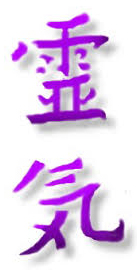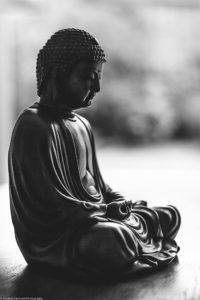A definition of Reiki is as follows:-
‘ Reiki can be described as a holistic hands-on system which was originally developed by a Japanese Buddhist Monk called Dr Mikao Usui  in the early part of the twentieth century. It is a gentle, yet powerful complementary therapy that can be used with confidence alongside orthodox healthcare.’
in the early part of the twentieth century. It is a gentle, yet powerful complementary therapy that can be used with confidence alongside orthodox healthcare.’
This gives you an idea of what it is – but to fully understand it, you would need to experience a Reiki treatment for yourself. Even then, it would not be possible to convey everything about a Reiki treatment because everybody’s experience is different according to your physical, mental, emotional and spiritual condition. The definition of Reiki sounds quite simplistic, but it is one of the most profound ancient healing therapies, and a gift to all that seek it.
The word Reiki (pronounced Ray-Kee), can be translated as “Universal Life Force Energy’. Reiki is not a religion or a belief system and can be experienced by everyone; adults, pregnant mothers, children, the elderly and even animals. It is used in hospices, some hospitals, care homes, and complementary therapy centres and health centres, as well as by individual practitioners. It continues to grow in popularity and is mainly used alongside conventional medical treatment as a complementary therapy.
Reiki can be split into two words, Rei and Ki.
 Rei and Ki can be translated into many different words as they originate from the Japanese language, which is quite a complex language. One meaning of the word Rei, is ‘Sacred’. One meaning of the word Ki is ‘Life-Force Energy’.
Rei and Ki can be translated into many different words as they originate from the Japanese language, which is quite a complex language. One meaning of the word Rei, is ‘Sacred’. One meaning of the word Ki is ‘Life-Force Energy’.
Ki (known as ‘Chi’ or ‘Qi’ in China, ‘Prana’ from India), refers to the vital energy which flows through all living things. It operates at high vibrations and fast frequencies, but it can be detected by various forms of electro-magnetic equipment.
Reiki is a Spiritual Energy and operates on an even higher and faster vibration than the Ki present in the physical body and the aura. It is able to move through all parts of the human energy field to break through energetic blockages and help healing. The source of this high Spiritual Energy can be described in various ways, according to your belief system – such as ‘God’, ‘The Source’, the ‘All-That-Is’, ‘The Universe’. You could also think of it as part of your Soul or Spirit, or your Higher-Self that you can access to help you.
The history of Reiki has been well documented, but there are different versions, which can be confusing.
The system of Reiki healing was developed by a Japanese Buddhist Monk, called Dr Mikao Usui (b. 1865 -d. 1926). Born into a wealthy family, and studying Pure Land and Zen Buddhism, Usui wanted to experience Enlightenment, which is another name for ‘Satori’, where we strive to become totally at one with everyone, everything, and the Universe- where we are totally present ‘In the Now’. He decided to meditate and fast for 21days on the Kurama Mountain near Kyoto, Japan. On the 21st day he experienced this connection as a lightening bolt of blinding white light, or Reiki Energy, where he felt completely at peace and at one with everything. As well as it being a profound and life-changing Spiritual Experience, Usui now found he could heal physical ailments as a result of this phenomena. He then decided to set up his own healing clinic and train other practitioners in the system of Reiki , but in a way that was easier and more accessible to others. I will give a much fuller and the most up to date explanation of the history in my Reiki courses, as it is a fascinating subject.
Reiki may help with many conditions, including:
Depression, Stress, Grief, Headaches/Migraines, High Blood Pressure, Digestive Problems, Irritable Bowel Syndrome, Fertility Problems, Pre-menstrual Problems, Menopausal Problems, Skin Conditions ( Eczema, Psoriasis, Acne), Muscular/Skeletal Symptoms, Weight issues, Pain- Relief, Recovery from Addiction, Recovery from illness or injury, recovery from drug therapy after surgery or chemotherapy and support to the Immune System. It also helps to induce a feeling of well-being and relaxation.